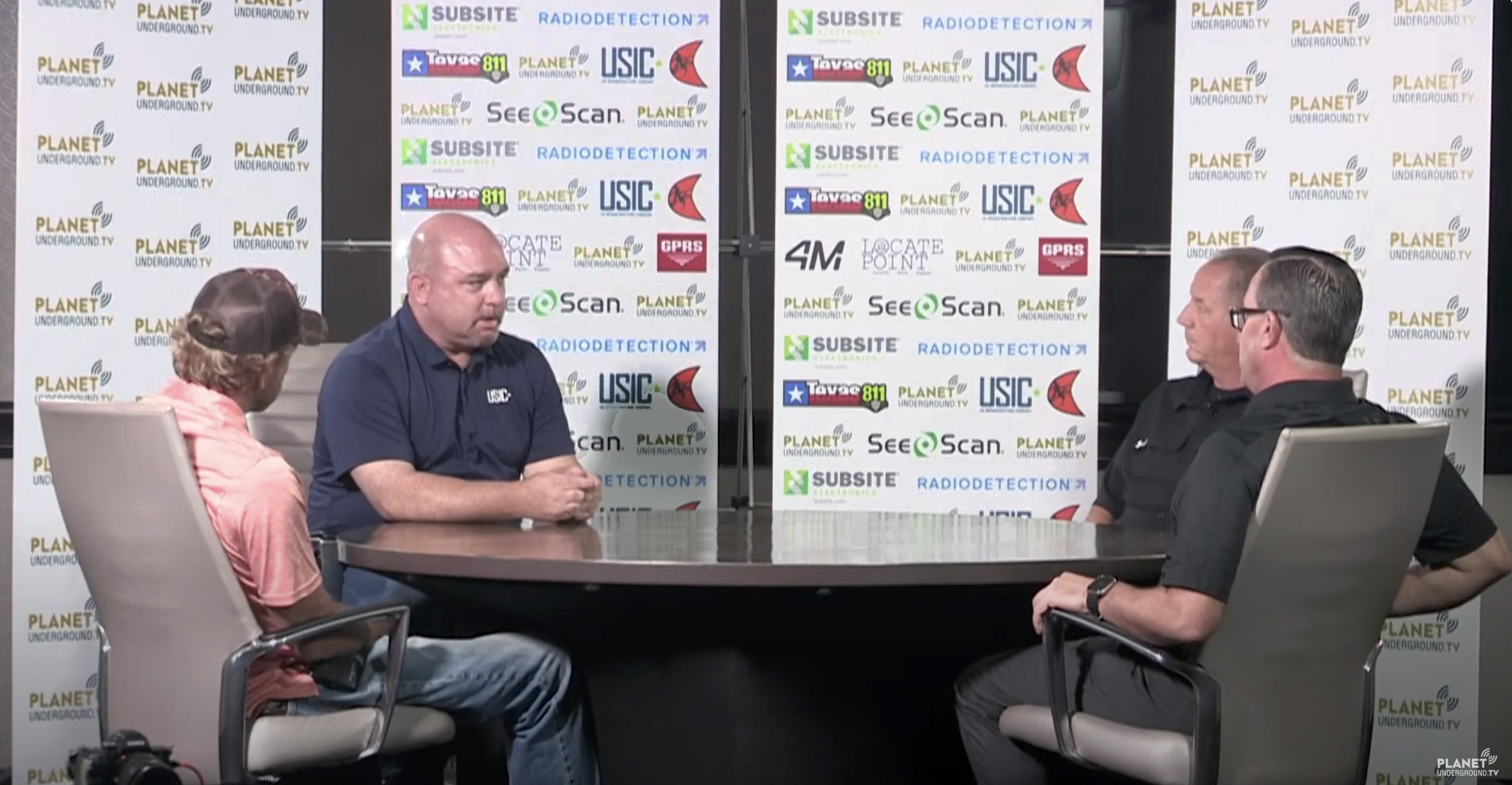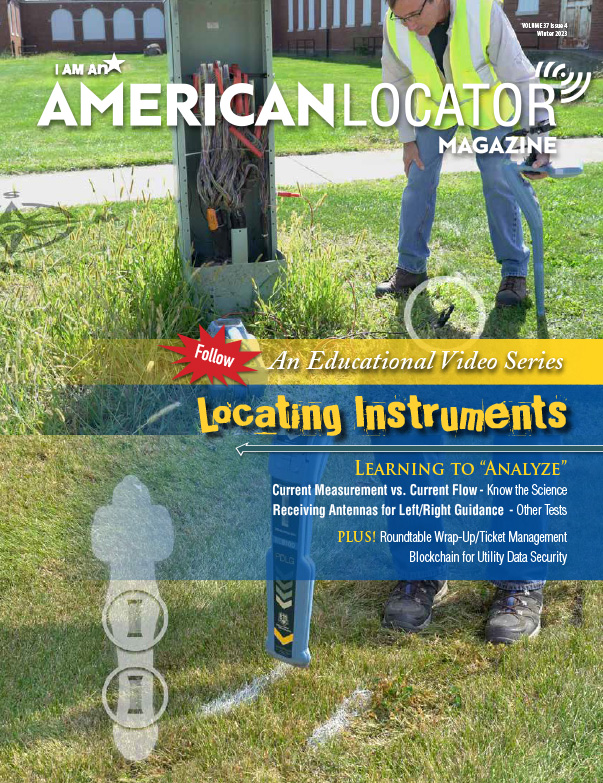Feature
Is a Ticket a Ticket? Roundtable 2023 Table Spotlight
A Contractor’s Point of View
The Roundtable attracts and gathers together leaders of the underground utility industry with years of experience in the field, and there isn’t a more appropriate group to propose legitimate ideas for all stakeholders. We are proud to see how The Roundtable has grown and evolved over the years, from a single casual, yet insightful conversation about what’s happening in the industry, into a multi-table, scheduled and topic-based format with a moderator. Participants are excited and engaged when they have a chance to share their points of view with their peers in the industry, professionals they may not normally ever have the chance to talk to one-on-one. We’ve selected this particular table, presenting, importantly, the contractor’s point-of-view when it comes to current jobsite challenges in damage prevention.
This transcript is one of many conversations (edited for print) from The Roundtable. Write us at: info@planetunderground.tv with comments or testimonials on your own Roundtable experience! We hope you enjoy the conversation.
(on systemic challenges and workforce capacity) If you let 250 people on the airplane and it crashes every single time, and then you look at the pilot and wonder why the plane crashed? So work ticket priority is one solution…
– Doug Kenyon
TOPIC: Should one ticket be considered more important than another? Or is a ticket is a ticket is a ticket?
Doug Kenyon: Great question. So, I think there’s a direct answer to the question that not all tickets are the same. An update ticket that was auto generated for the 90th time can’t be in the same priority as a different ticket. But the question begs a larger question: when we talk about the system, I think of overload of the system, right? Ultimately, I think of late locates and on time performance and what’s the cause there. And are there some systemic issues that are creating that? And I would have to say, yes, there are. We’re a workforce to workload business, and about this time of year, we start forecasting for 2024. We’ll take historic volumes and do known projects, do some organic growth year over year to project our work staff or our workforce. Then we do hiring and training, and I would say on average, it takes six months to get a technician that’s up and running and efficient and maybe make a dollar. And yet, we have a completely variable workload. There seem to be no controls on that.
So, there are no limitations on day-to-day volumes. The 811 rules on what a ticket is are different from state to state. What can be called in on a ticket or the size and scope of a ticket vary from state to state. And I think when we talk about systemic challenges, that’s certainly one for us. I’ll use one analogy of capacity. So there’s a workforce capacity, and an analogy of that would be an airplane. You have a 150-passenger airplane, and that’s the capacity. Well, if you let 250 people on the airplane and it crashes every single time, and then you look at the pilot and wonder why the plane crashed? So work ticket priority is, I think, one solution to that larger issue. But I think there are many more solutions.
Tom Hall: I agree. I think it’s a shared responsibility across the board where the call center plays into it to some degree. You do want to limit some of the things that might restrict people that might want to call in certain types of tickets. But on the other side, there’s also the need, I think, to let organizations prioritize tickets and have ways of doing that so that the work can be done in an appropriate way based not only on the ticket itself, but also the real time conditions in the field. Technology can be one way that can happen.
Good management can affect things such as, how effective are we at keeping personnel? Because again, new personnel aren’t going to be as efficient as older personnel. You guys know that better than anyone. And so how do you retain your talent and how do you make sure that you’re giving them the tools so they can keep up with the management of their day? And I think the call centers have the ability to help as well, given some of the restraints that could be put on some of these open-ended processes and rules, if you will, that they have right now.
Chris Work: I agree. I think that communication is key here where you talk to 811. Say we’re coming into town A, and we’re going to be here for the next nine months, ten months building here. We want to create a relationship with the locate company, with 811, with the gas companies, that sort of thing. So as far as “a ticket is a ticket”, yes, but in the aspect of…we’re going to be here for the next nine months and we can forecast where we’re going, what we’re doing. At every turn, there is something, there’s a company that can’t locate their utility, and we’re constantly having to juggle where we’re going because of things that are beyond our control, and we’re trying to hit a deadline. It’s a constant struggle. But as far as “a ticket is a ticket is a ticket”, I think that all comes down to, when we come into a market, we need to sit down with all parties and let’s communicate what our plan is here. And ultimately, I’d prefer them to prioritize us. But at least everybody’s on the same page and recognizes where we’re trying to get to.
“The downtime is something that I have to battle every day, whether it’s subcontractors or internally…because of mismarks…” – Chris Work

This Story is a Subscriber Exclusive.
A Contractor’s Point of View
The Roundtable attracts and gathers together leaders of the underground utility industry with years of experience in the field, and there isn’t a more appropriate group to propose legitimate ideas for all stakeholders. We are proud to see how The Roundtable has grown and evolved over the years, from a single casual, yet insightful conversation about what’s happening in the industry, into a multi-table, scheduled and topic-based format with a moderator. Participants are excited and engaged when they have a chance to share their points of view with their peers in the industry, professionals they may not normally ever have the chance to talk to one-on-one. We’ve selected this particular table, presenting, importantly, the contractor’s point-of-view when it comes to current jobsite challenges in damage prevention.
This transcript is one of many conversations (edited for print) from The Roundtable. Write us at: info@planetunderground.tv with comments or testimonials on your own Roundtable experience! We hope you enjoy the conversation.
(on systemic challenges and workforce capacity) If you let 250 people on the airplane and it crashes every single time, and then you look at the pilot and wonder why the plane crashed? So work ticket priority is one solution…
– Doug Kenyon
TOPIC: Should one ticket be considered more important than another? Or is a ticket is a ticket is a ticket?
Doug Kenyon: Great question. So, I think there’s a direct answer to the question that not all tickets are the same. An update ticket that was auto generated for the 90th time can’t be in the same priority as a different ticket. But the question begs a larger question: when we talk about the system, I think of overload of the system, right? Ultimately, I think of late locates and on time performance and what’s the cause there. And are there some systemic issues that are creating that? And I would have to say, yes, there are. We’re a workforce to workload business, and about this time of year, we start forecasting for 2024. We’ll take historic volumes and do known projects, do some organic growth year over year to project our work staff or our workforce. Then we do hiring and training, and I would say on average, it takes six months to get a technician that’s up and running and efficient and maybe make a dollar. And yet, we have a completely variable workload. There seem to be no controls on that.
So, there are no limitations on day-to-day volumes. The 811 rules on what a ticket is are different from state to state. What can be called in on a ticket or the size and scope of a ticket vary from state to state. And I think when we talk about systemic challenges, that’s certainly one for us. I’ll use one analogy of capacity. So there’s a workforce capacity, and an analogy of that would be an airplane. You have a 150-passenger airplane, and that’s the capacity. Well, if you let 250 people on the airplane and it crashes every single time, and then you look at the pilot and wonder why the plane crashed? So work ticket priority is, I think, one solution to that larger issue. But I think there are many more solutions.
Tom Hall: I agree. I think it’s a shared responsibility across the board where the call center plays into it to some degree. You do want to limit some of the things that might restrict people that might want to call in certain types of tickets. But on the other side, there’s also the need, I think, to let organizations prioritize tickets and have ways of doing that so that the work can be done in an appropriate way based not only on the ticket itself, but also the real time conditions in the field. Technology can be one way that can happen.
Good management can affect things such as, how effective are we at keeping personnel? Because again, new personnel aren’t going to be as efficient as older personnel. You guys know that better than anyone. And so how do you retain your talent and how do you make sure that you’re giving them the tools so they can keep up with the management of their day? And I think the call centers have the ability to help as well, given some of the restraints that could be put on some of these open-ended processes and rules, if you will, that they have right now.
Chris Work: I agree. I think that communication is key here where you talk to 811. Say we’re coming into town A, and we’re going to be here for the next nine months, ten months building here. We want to create a relationship with the locate company, with 811, with the gas companies, that sort of thing. So as far as “a ticket is a ticket”, yes, but in the aspect of…we’re going to be here for the next nine months and we can forecast where we’re going, what we’re doing. At every turn, there is something, there’s a company that can’t locate their utility, and we’re constantly having to juggle where we’re going because of things that are beyond our control, and we’re trying to hit a deadline. It’s a constant struggle. But as far as “a ticket is a ticket is a ticket”, I think that all comes down to, when we come into a market, we need to sit down with all parties and let’s communicate what our plan is here. And ultimately, I’d prefer them to prioritize us. But at least everybody’s on the same page and recognizes where we’re trying to get to.
“The downtime is something that I have to battle every day, whether it’s subcontractors or internally…because of mismarks…” – Chris Work


